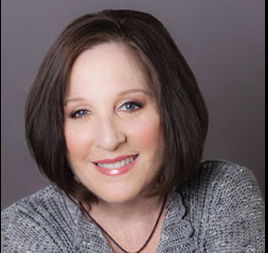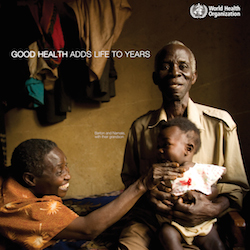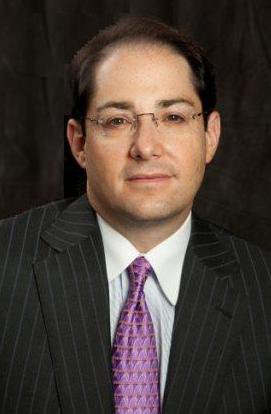Practice Management
Balancing Priorities and Relationships as Integrative Healthcare Providers, with Adam Perlman, MD
Relationships, priorities, and a life worth living when serving as a physician Essay by Adam Perlman, MD, MPH, Director of the Leadership Program in Integrative Healthcare at Duke University. Relationships are a key component to success — and sometimes failure — not only on the job but also in one’sRead
Want Dynamic Leadership? Find a Partner
By Bonnie Horrigan When conceptualizing the Leadership Program for Integrative Healthcare at Duke, a group of us were brainstorming what might make a leader in an integrative clinic different from a leader in a conventional healthcare setting. We looked at the principles involved in integrative care and asked ourselves: CouldRead
Five Domains of Integrative Leadership, White Paper
We have all thrown a pebble into a pond and watched the ripples spread out across the water. One small stone entering the water can affect the entire pond. Leaders in Integrative Healthcare who have the opportunity and responsibility to bring about transformative change within their organization are, in fact,Read
Communicating with Patients About Dietary Supplement Use
The use of dietary supplements among patients affected by cancer is extensive, with an estimated 20-90 % of patients using these products. Their use of these products is often not shared with the treating physician. “Doctors need to understand why patients with cancer use dietary supplements in the first place. Patients tend to use these supplements because they want to do everything possible to feel hopeful, empower themselves, enhance the body’s natural defenses, use less toxic treatments, or reduce side effects of mainstream treatments,” said Dr. Victor Sierpina, UTMB professor of family medicine. “In fact, most patients choose to use dietary supplements to improve their quality of life rather than seeking a cure for their disease.” In the September issue of Current Oncology Reports, researchers at University of Texas Medical Branch, Sierpina describes a patient centered approach to managing dietary supplement use in cancer care. By Moshe Frenkel and Victor Sierpina, published in Current Oncology, Sept. 2014.
Put the Script Pad Down: FDA’s New Drug Approvals Pose Significant Risks
For every 100 new drugs introduced in the market, there have been 34 withdrawals or new black box warnings in the past 25 years. Since 1992, FDA sped up the pace and approval process for pharmaceutical companies willing to pay a fee. Approval time was cut in half, but with it came a significant number of safety withdrawals and warnings. This study, released today in Health Affairs, shows the expeditious process has placed millions of Americans at risk, essentially making them unwitting members of safety trials after the drug was approved.
Inadvertent Stereotyping Leads to Healthcare Disparities
Going to the doctor’s office is a stress-inducing event for many people But for blacks, it can be particularly terrifying, because of something called negative racial stereotyping. And while racial stereotyping may not be intentional, it can seep into a patient’s psyche in ways you might not realize. A first-of-its-kind study by researchers at USC and Loyola Marymount University (LMU) has found evidence that the persistent health disparities across race may, in part, be related to anxiety about being confronted by negative racial stereotypes while receiving healthcare. Black women who strongly identified with their race were more likely to feel anxious in a healthcare setting – particularly if that setting included messaging that promoted negative racial stereotypes, even if inadvertently. Posters can be one source of this negative stereotyping. In light of this research, Today’s Practitioner tracked down some positive messaging on aging that you can download for your office (high-resolution downloads available free for Today’s Practitioner’s registered users). By Cleopatra M Abdou and Adam W Fingerhut, published in the American Psychological Association journal Cultural Diversity and Ethnic Minority Psychology, July 21, 2014, Vol. 20.
US Dead Last in Healthcare Rankings, Critics Cite Socialized Medicine Bias
“We’re Last! Again!” was the headline on NBC News regarding the most recent Commonwealth Fund Report on the state of industrialized countries’ healthcare systems. Once again, the US was deemed the most expensive and the least effective, least equitable and had the poorest outcomes among its economic counterparts. Critics argued the study is biased toward socialized medicine and does not take into account the technological advances and patient satisfaction and outcomes. On the plus side, the US scored well in preventive care efforts, under the category of “effective care.” And, certain states scored well —Minnesota, Massachusetts, New Hampshire, Vermont, and Hawaii—lead the nation across most dimensions of care.
Dear Doctor, #PleaseTextMe
Reminder: Plz take your meds. How r u feeling 2day? These aren’t texts from Mom, they are from physicians. Text messaging in health care started with routine appointment reminders. Today, evidence shows patients prefer to receive texts and updates from their health-care providers. Physicians report text messaging can influence health behavior and decisions and save time for health care providers. With better compliance outcomes and time savings, why aren’t you texting your patients? Download a free white paper for more on mobile technology and practice management.
College Students’ Familiarity with CAM Supplements
Digitizing patient care, a revolution with a slow download speed
By Kimberly Lord Stewart The digital age of medicine is upon us. Sophisticated digital technology tools like a Google contact lens can measure blood sugar from tears (see the story here), and biosensors can continuously monitor blood pressure opposed to the few minutes the patient is in the exam room. Read














